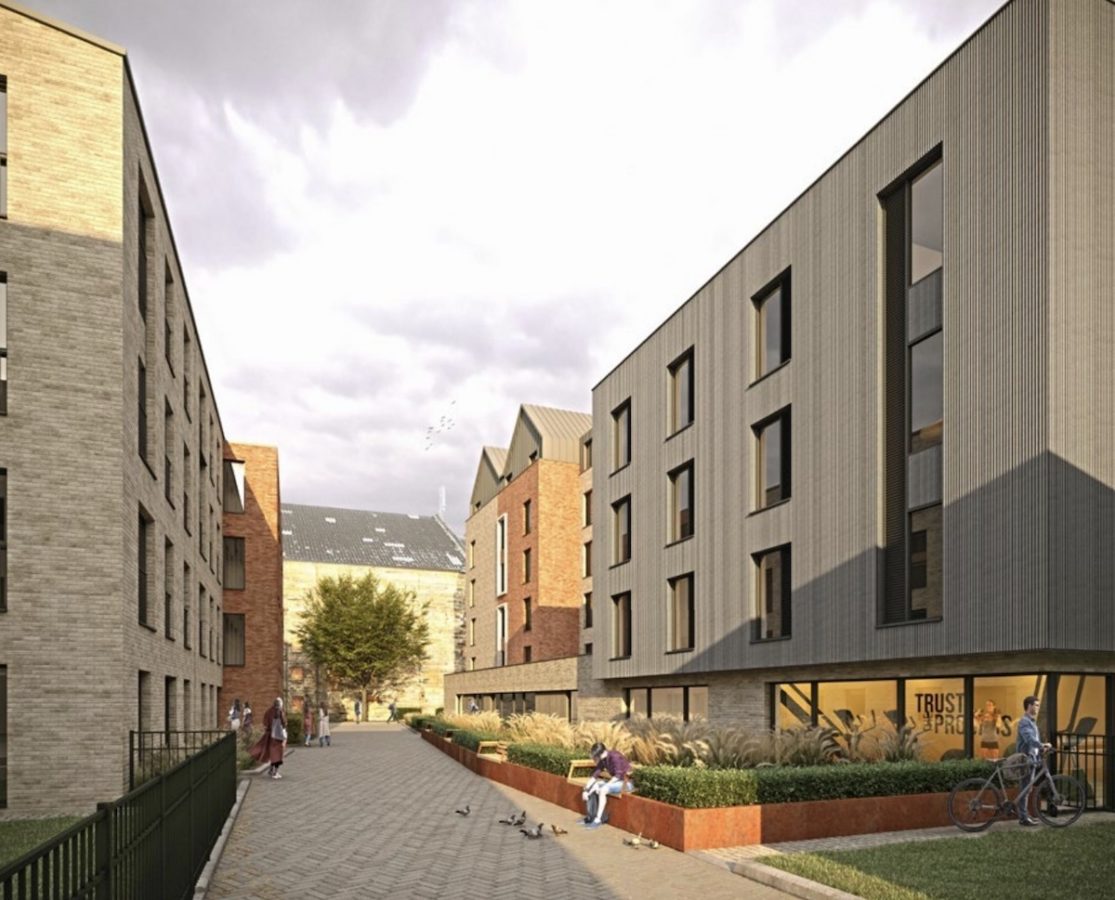Controversial Leith Walk development gets go ahead
A controversial student housing development has been given the green light for Edinburgh’s Leith Walk following a knife edge vote by councillors.
Developers behind the plans were accused of ignoring the wishes of the local community and failing to address a huge social housing shortage, with their proposals for the vacant site predominantly student accommodation.
The council also came under fire for supporting the plans as objectors described the designs as “crap” and said the new buildings would create a “very unpleasant environment” for neighbours due to daylight being blocked out.
Objectors also argued that the proposals were “at odds” with the Halmyre Street Place Brief, a council document drawn up to shape the future development of the site.
The approved bid by CW Properties will see a large warehouse situated on the plot between Leith Walk and Halmrye Street, to the east of 139 Leith Walk, demolished and replaced with a six-storey block to house 230 students, with three commercial units on the ground floor.
In addition, there will be two five-storey blocks, one with 27 affordable flats and the other with 27 build to rent flats.
Plans received 172 public objections and just one letter of support and were supported by six votes to five by members of the planning sub-committee on Wednesday (April 26).
Leith Central Community Council were among the groups to oppose the development going ahead, with members attending the meeting in a last-ditch attempt to persuade councillors to refuse the application.
John Wilkinson said: “The proposal to build 230 student beds and only 27 affordable flats plus 27 build to rent flats fundamentally misinterprets the Halmyre Place Brief which emphasises the need in Leith for environmentally sustainable, social and affordable housing rather than student accommodations.
“The Edinburgh Urban Design Panel has expressed strong concerns since the early stage of the proposal with respect to the proposed level of student accommodation, general land use, layout, height, materials and security.”
Mr Wilkinson said the buildings would block sunlight from residents’ windows – leaving some with less than “minimum daylight requirements”.
And he said the development would result in “an excessive concentration of student accommodation that would be detrimental to the balance of the community”.
He added: “This is not what is wanted in Leith.
“We want quality. If you’re going to build this, it is going to last for 30 or 40 years, are you happy looking at this for the next 30 years? That’s all we really want to know. If you want to keep building crap, carry on.”
David Walliker, from the Save Leith Walk campaign, said the “over dominant student housing block” would create a “very unpleasant environment” around the site.
He said: “There was a consultation, and in that consultation people were asked and there was a specific section about housing in there, it said: ‘what would you want to have on this site’.
“There were 120 people wanting social and affordable housing out of 230. There was one who said we would like student housing. This development is the complete opposite to what people wanted. It flies in the face of reality.”
Also highlighting that residents had clearly signalled their wishes for the site, Leith Walk Cllr Susan Rae (Greens) told the committee the place brief gave a “very clear mandate” for affordable housing.
She said: “We feel that there’s been serious compromise made to affordable housing to accommodate student accommodation here.
“In Leith Walk, as you’re all aware, it’s the most densely populated ward in the city.
“Quite a large number of those builds are already student housing.”
“The community doesn’t want to accept this continual overbuild of student accommodation without helping us with the housing and the social housing we desperately need; we have 13 per cent social housing in my ward, only 13 per cent, and 9,000 people on a housing waiting list – and yet we still persist with building not enough social housing and overcompensate student housing – and people are very distressed about that.”
Taking a different view, Cllr Jo Mowat, Conservatives, described it as “quite a solid application”.
She said: “It is really difficult to develop sites in densely populated areas, this is a large piece of what is a lot of car parking and an empty warehouse at the moment.
“You will always get a lot fewer traditional residential properties that you will get student bed spaces simply because of what we ask developers to put in for amenity reasons.”
by Donald Turvill Local Democracy Reporter
The Local Democracy Reporting Service (LDRS) is a public service news agency. It is funded by the BBC, provided by the local news sector (in Edinburgh that is Reach plc (the publisher behind Edinburgh Live and The Daily Record) and used by many qualifying partners. Local Democracy Reporters cover news about top-tier local authorities and other public service organisations.
